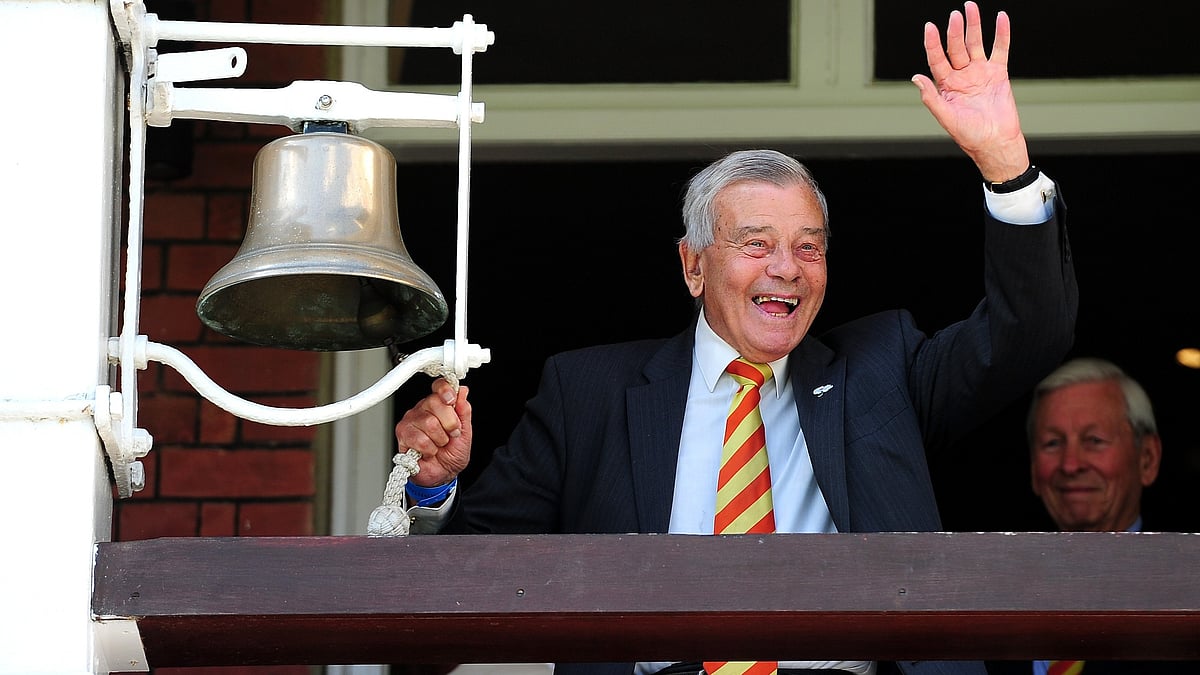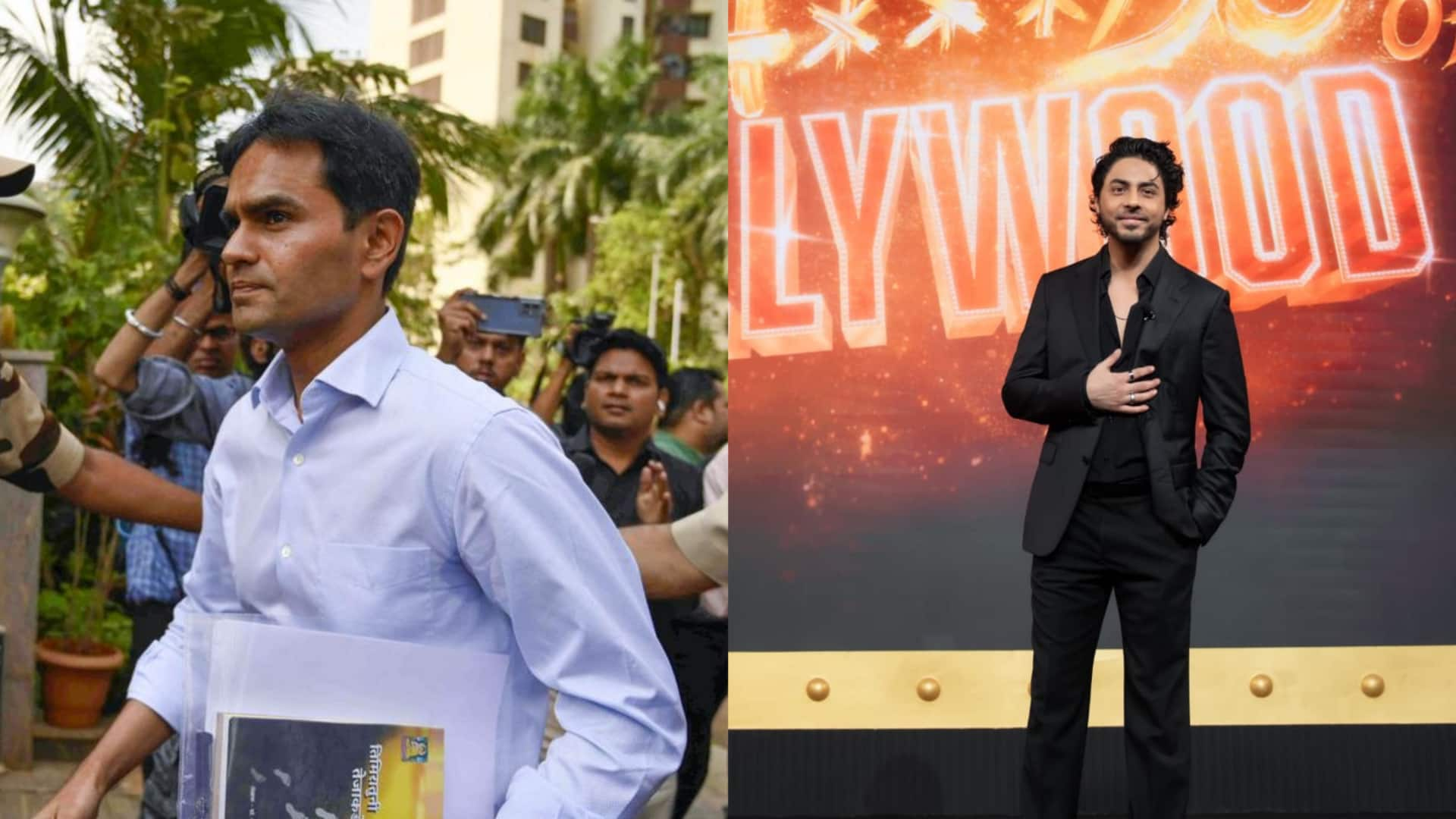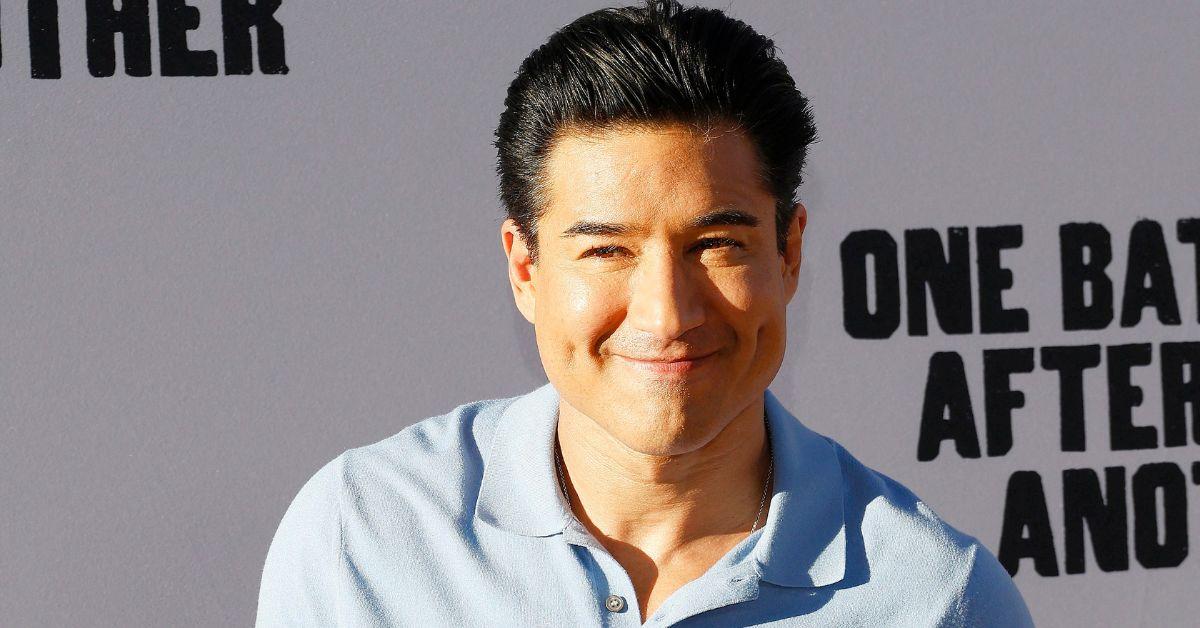‘Umpire’ derives from the French *noumpere* (‘oumpere’ in Middle English). It means “without peer or equal,” a description that fittingly applies to umpire Harold Dennis Bird—known as ‘Dickie,’ a nickname he carried from school—who has died at the age of 92.
Cricket is a wide church welcoming characters of all hues, making national heroes not only of players but of umpires and spectators alike. The famous barracker Yabba (Stephen Gascoigne) has a statue at the Sydney Cricket Ground. Similarly, there’s a statue of Bird at Barnsley, his birthplace. Dickie Bird loved cricket, and cricket loved him back. Of few can this be said so honestly.
As broadcaster Michael Parkinson put it, “Like a tree bent and moulded by the prevailing wind, so the curve in Bird’s spine, the hunch of his shoulders, and the crinkled eyes as he inspected the world have been sculpted through a lifetime’s dedication to cricket…”
What made Bird stand out, aside from being one of the best umpires—even if he was characterized as a ‘non-hanging’ judge when it came to leg-before-wicket decisions—was his legendary worrying.
This too is well captured by Parkinson, with whom Bird played club cricket (as he did with Geoff Boycott, his colleague at Barnsley and Yorkshire). “He is adept at inventing worry,” Parkinson wrote, “about getting to Heathrow to catch his flight to the West Indies on time. Having arrived at the airport, he will worry about the pilot being able to find the West Indies. When he is in the air, he will worry about whether he left the gas on at home… He used to sit in the pavilion at Barnsley and chew his fingernails through his batting gloves while waiting for his turn at the wicket.”
The stories of Bird arriving for a lunch with the Queen at Buckingham Palace four hours early—worried about cutting the grapes and squirting the Queen with them—or scaling the wall at the Oval after arriving five hours ahead of the game, are to the Bird legend what statistics are to professional players. Anecdotes reveal character more readily than averages.
Once the game began, though, Bird was, in his own words, “calm and focused.” For example, when England batter Allan Lamb walked out to bat in a Test match and handed Bird his phone, Bird accepted it as he would a bowler’s sweater or cap and put it in his pocket. He worried that the phone might ring—and it did. It was Ian Botham calling. “Tell that bloody Lamb to either play a few shots or get out.”
Such stories were publicized by Bird himself, many of them appearing in his autobiography—one of the highest-selling sports books in Britain.
For Bird, the word ‘trusted’ meant more as an umpire than in any other context. The great players of his day—from Dennis Lillee and Garry Sobers to David Gower—associated that word with his work. In his book, Bird also recalls giving Sunil Gavaskar a haircut in the middle of a Test match when the batter complained his hair was falling over his eyes.
“I gave him a good old-fashioned short back and sides,” Bird said proudly, acting beyond the call of duty.
“I won’t have to go to the barber’s again this summer,” Gavaskar responded.
But it wasn’t all fun and games. Umpiring is hard work. In the days before DRS and third umpires, the men on the field had to get it right each time, aware of the finality implied by the raised index finger.
Bird retired in 1996, before external aids exposing umpiring errors came into international use. He was no fan of the changes, claiming—like many nostalgists—that not allowing the on-field umpire to make the decisions was a loss to cricket.
Bird once gave Chris Cowdrey out caught behind. The batter was halfway to the pavilion when Bird decided the ball had come off his forearm and recalled him. This was double bravery in action: admitting a mistake and depriving fiery fast bowler Curtly Ambrose of a wicket.
English off-spinner Jim Laker once criticized Bird for hogging the limelight, saying: “The best umpires are seldom noticed, and I cannot believe it was purely coincidental that every incident in this Test match (against the West Indies) seemed to involve him.”
But perhaps the cliché is not entirely true.
The best umpires—like Frank Chester, the one-armed umpire who lost his right arm in WWI and began the custom of bending low over the stumps as the bowler approached—were as popular for their wit and dramatics as for their sharp decisions. Chester was considered by Donald Bradman as the finest of his time.
Alec Skelding, a part-time poet, wrote of the umpire:
*“Most of the time he stands to be shot at,
An immobile creature for mankind to pot at.”*
India’s Srinivas Venkatraghavan, who belongs in that distinguished company, could be dangerously funny if an appeal was frivolous.
Simon Taufel, the modern great, is probably the exception.
I have heard of cricket nerds trying to check out past decisions on DRS: Was Sunil Gavaskar really leg before there, or was Viv Richards stumped? But for Dickie Bird, it won’t matter.
He “didn’t just umpire the game; he owned it with heart, wit and class.”
That tribute by Anil Kumble should be carved on his gravestone.
—
*Suresh Menon is a writer and author based in Bengaluru.*
https://www.freepressjournal.in/analysis/cricket-mourns-legend-umpire-dickie-bird-renowned-for-wit-wisdom-and-unmatched-dedication-passes-away-at-92



